Planes Drop Thousands Of Kilograms Of Carrots And Potatoes To Feed Animals Starving Because Of The Australian Bushfires
Australians are finding innovative ways to help the animals affected by the bushfires that continue to ravage the country. The government of New South Wales is using planes to drop thousands of kilograms of carrots and sweet potatoes to feed starving animals.
This stunning and creative idea is nicknamed ‘Operation Rock Wallaby’ and it’s led by the New South Wales National Parks and Wildlife Service. The main goal of the operation is to feed the state’s marsupials since the bushfires greatly affected them.
So far, aircraft have dropped over 2,200 kilograms of fresh vegetables from the sky. Cloudy with a chance of carrots? Definitely. Scroll down for Bored Panda’s interview with an Australian from Kangaroo Island about the current situation there.
Australians are dropping thousands of kilograms of fresh veggies from the sky to feed starving animals affected by the bushfires
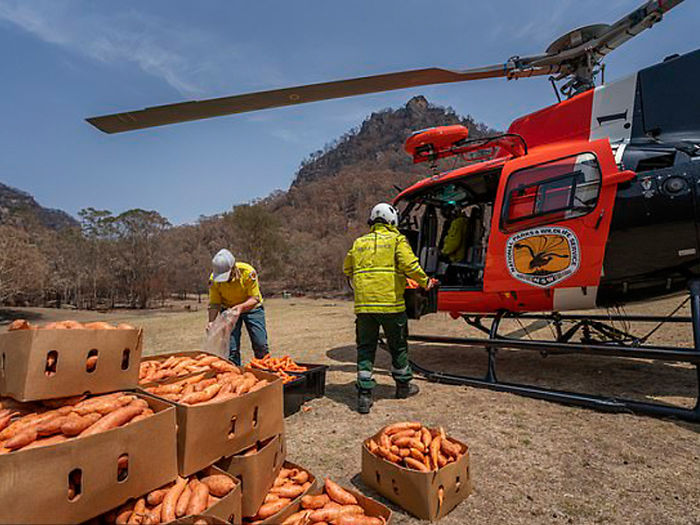
Image credits: AnimalsAustralia
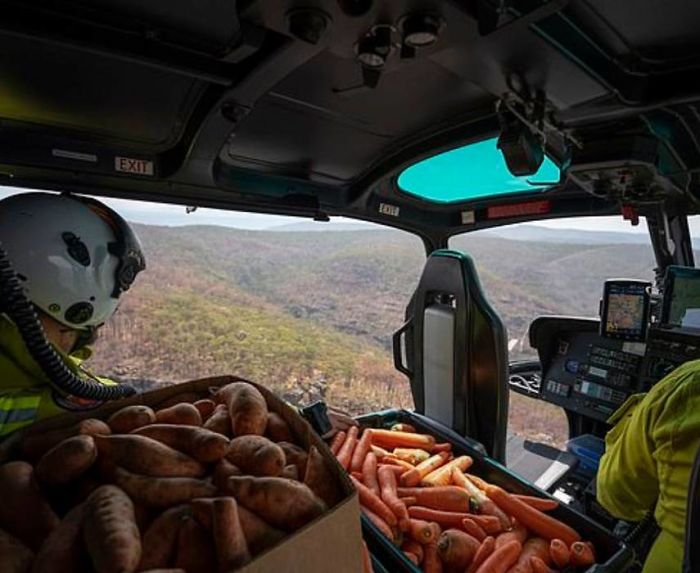
Image credits: AnimalsAustralia
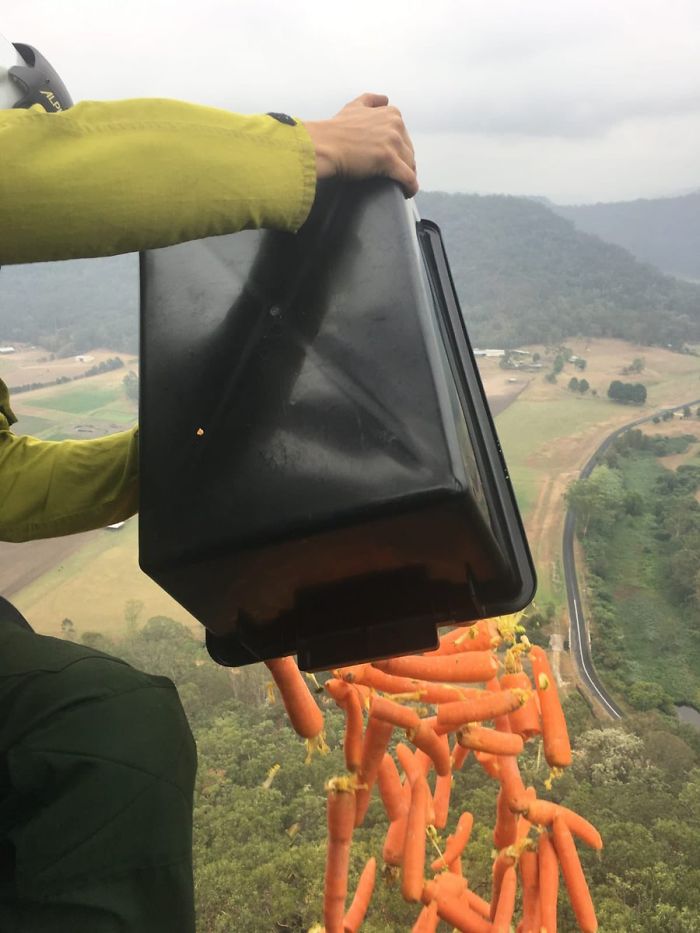
Image credits: Matt_KeanMP
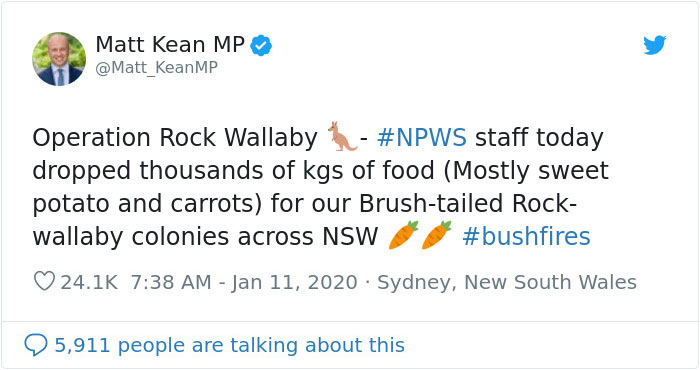
Image credits: Matt_KeanMP
According to Matt Kean, the New South Wales Environment Minister, the animals who fled the fires now don’t have anything left to eat which is why they need a helping hand. One species greatly affected are the wallabies.
Wallabies fled the fires and are now starving
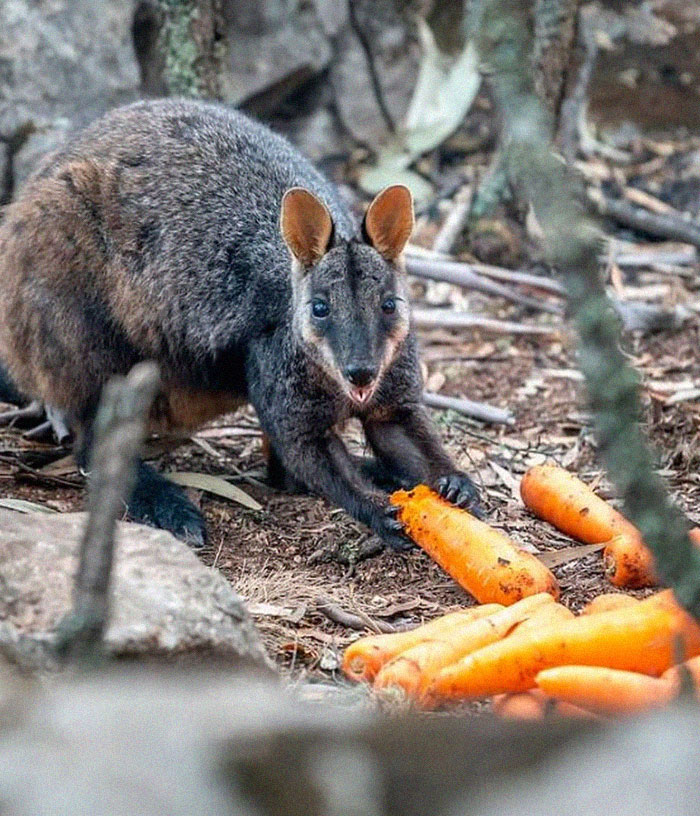
Image credits: AnimalsAustralia
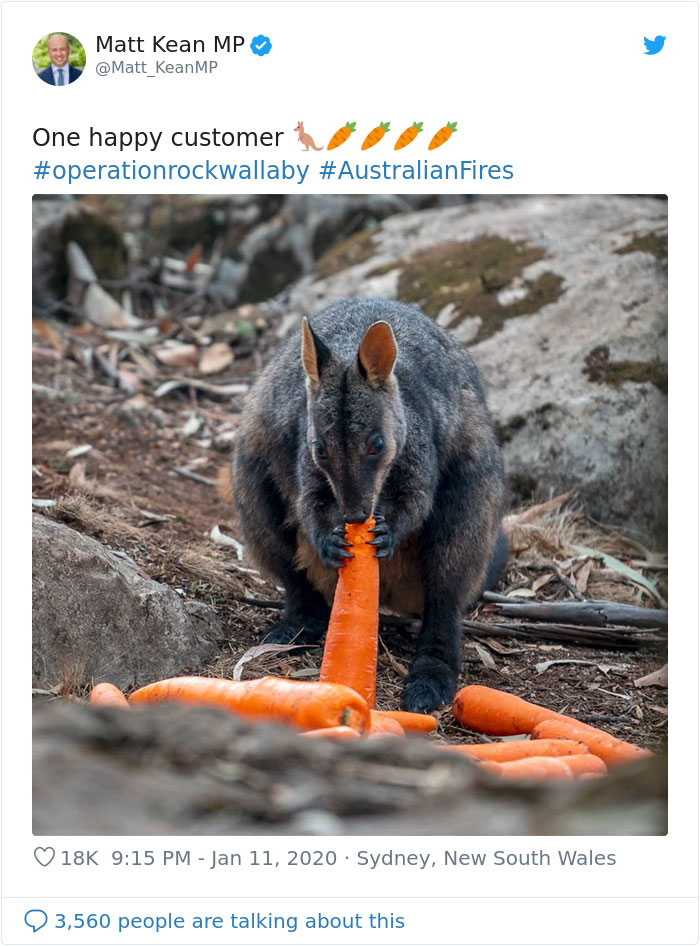
Image credits: Matt_KeanMP
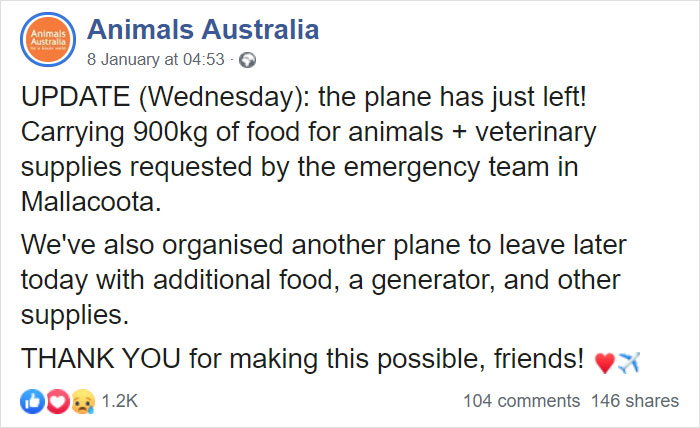
Image credits: AnimalsAustralia
Bored Panda spoke to local Steve, a cousin to two teenagers who drove around Kangaroo Island in a car saving koalas, about the current situation in Australia. Steve remains cautiously optimistic that the wildlife will recover, in time.
“The koala situation is certainly dire, but I remain cautiously optimistic. The fires destroyed a lot of their habitat, but since their primary food source is one that germinates through fire I think we’ll see nature bounce back rather quickly. That’s my hope anyway. The aim is to keep the existing population fed and cared for in the meantime,” he said about the Australian koala population.

Image credits: AnimalsAustralia
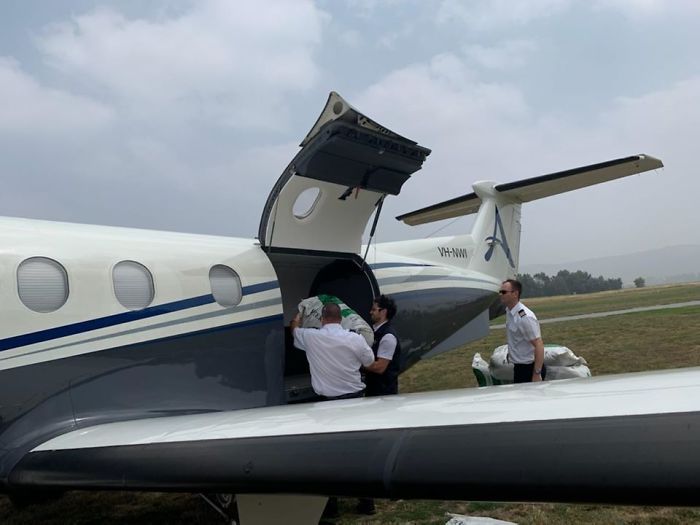
Image credits: AnimalsAustralia
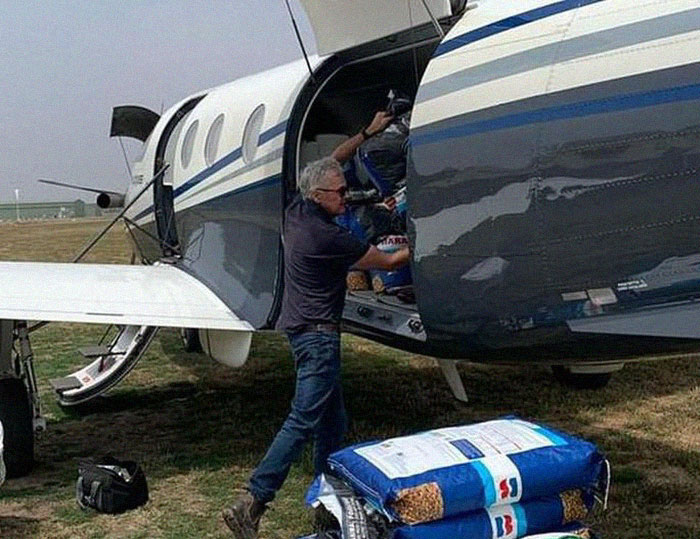
Image credits: AnimalsAustralia
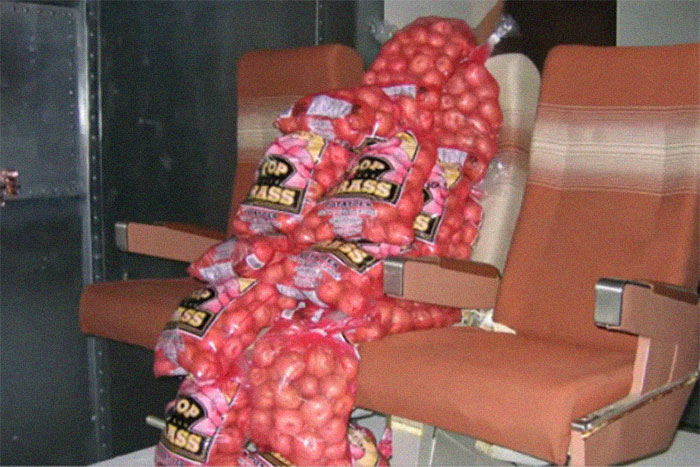
Image credits: AnimalsAustralia
According to him, the locals in the midst of the natural disaster are “working tirelessly to help the situation.”
“Some, my mother included, are going and cooking meals for them, others are rescuing wildlife. There have also been a number who have risked the fires to attempt to save their homes with mixed success. My grandparents, for example, were able to save their home. They obviously put themselves in harm’s way by doing so and made the job of the firefighters harder, but it’s hard for some people to just let their whole world burn down.”
“My grandparents bought the home to renovate into their retirement home and have spent years remodeling. They were unable to leave it to chance and while successful their efforts are seen negatively by a number of us,” he added.
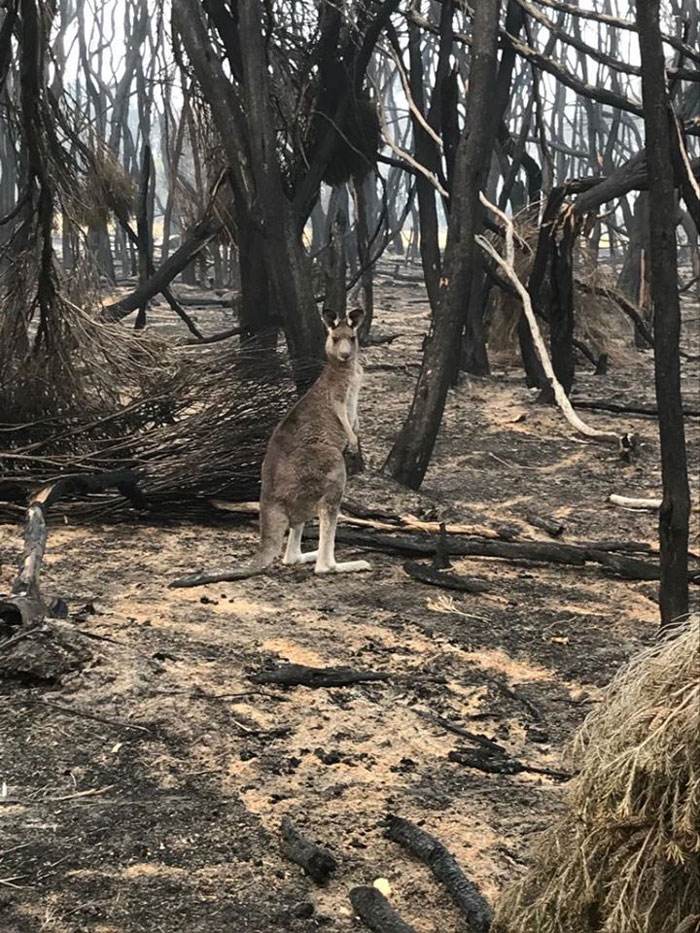
Image credits: AnimalsAustralia
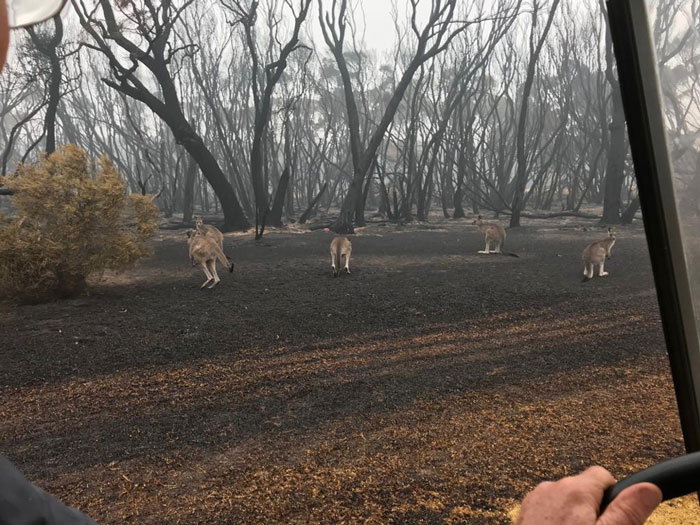
Image credits: AnimalsAustralia
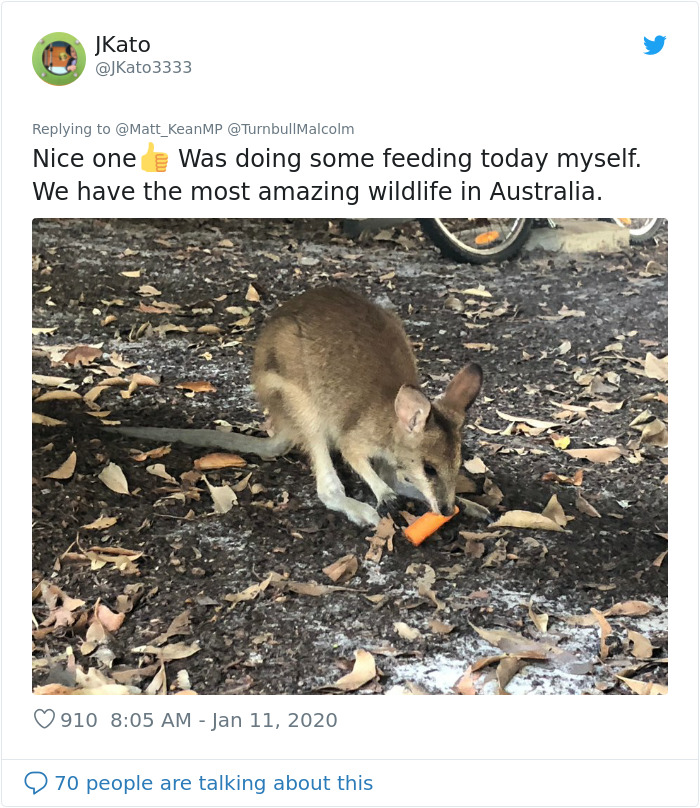
Image credits: JKato3333
Steve explained that he’s sad about the ordeal his country and community are going through. “I grew up on Kangaroo Island and a very large portion is now in ashes. It’s disheartening to see the level of destruction and be powerless to stop it.”
“The entire situation seems to have been preventable to a large degree. Recent changes by the government are perceived by many as being the culprit on what has been the worst fires for a long time. Previously, it was common practice to ‘back burn’ so as to mitigate the risks of fire, but that practice was halted and as such provided the fires with more burning material and made it easier to spread.”
He continued: “Australian trees are prone to fire because they germinate through fire, which is the same issue that California has. If these regulations are not returned to common usage these fires may become a recurring feature of Australian life.”
Internet users were very enthusiastic about the veggie operation




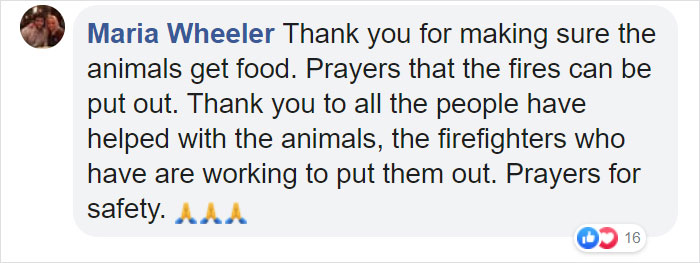
by Mindaugas Balčiauskas via Bored Panda - Source

No comments: